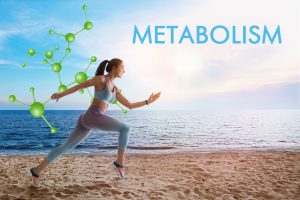 There is a lot lately on the news about this deadly drug. Apparently, it is very easy to overdose. It is also a synthetic drug.
There is a lot lately on the news about this deadly drug. Apparently, it is very easy to overdose. It is also a synthetic drug.
Here is an article on Fentanyl so you can have a better understanding of what they are talking about.

Contact Us chris@mcvitamins.com
 There is a lot lately on the news about this deadly drug. Apparently, it is very easy to overdose. It is also a synthetic drug.
There is a lot lately on the news about this deadly drug. Apparently, it is very easy to overdose. It is also a synthetic drug.
Here is an article on Fentanyl so you can have a better understanding of what they are talking about.
 Metabolism is about how a child’s body creates energy, fights disease, and keeps them alive and thriving. It’s the system behind the scenes that controls almost everything – energy levels, hormones, heart health, and even the brain.
Metabolism is about how a child’s body creates energy, fights disease, and keeps them alive and thriving. It’s the system behind the scenes that controls almost everything – energy levels, hormones, heart health, and even the brain.
With Special Needs children it is harder for their bodies to absorb nutrition due to a compromised gut. The gut wall is thus less permeable, and the blood-brain barrier is less permeable, and the nutrition molecules have difficulty passing through.
ERDS™ (Enhanced Rapid Delivery System) works to enhance the nutritional formulas because it improves solubility and absorption. ERDS is a special formulation of vitamins that increases the body’s ability to absorb more of the nutrition available.
ERDS is a proven to be a safe and effective method of improving this absorption and bioavailability of poorly soluble materials. The molecules of most nutrients are too large to be well absorbed by the cells.
The extract in ERDS can make the molecules in the nutritional ingredients smaller and of a shape that is more permeable and able to pass through:
•Intestinal lining
•Blood brain barrier
•Cellular lining.
This means that when ERDS is added to any source of nutrition it increases the amount of nutritional uptake (you get more of the available nutrition into your cells) and also the speed in which the nutrition is absorbed by the body is increased.
TEKNON includes ERDS™ (Enhanced Rapid Delivery System).
It will essentially increase the activity and get more of the Teknon into the gut. It will be able to permeate a variety of cell membranes including the gut, eyes, mouth and skin.
In the gut, malabsorption can also be caused by the rejection of certain compounds by the cells. Teknon enhanced by ERDS inhibit this rejection, and thus improving absorption through the gut wall.
Teknon is based on scientific studies to allow the body to have natural ingredients that have been found to support an optimum metabolism.
Teknon is a natural nutritional supplement to improve metabolism and gut health. ERDS is made up of special extracts of Vitamin E, Vitamin C, Vitamin A and Vitamin D3. Teknon also includes B1, B2, B6, calcium, iron, magnesium and potassium
ERDS is part of the Teknon formula and so it increases the nutrition available from the ingredients in the Teknon formula.
Read more about Teknon Protocol
 Sleep Quality is essential for your ongoing health and wellbeing.
Sleep Quality is essential for your ongoing health and wellbeing.
An increasing number of studies on sleep have explored the connection between sleep and the mitochondria. The mitochondria a small organ within the cells that produces energy from food. Thus, the mitochondria help the body repair itself during sleep and much more.
Your repairs itself while you sleep. If their sleep cycle is not good, it can have major effects on the body. The body goes through different changes while you sleep, and his process begins with the mitochondria.
For the body to repair itself, the mitochondria need to be producing energy from food. This controls the function of the ‘master gland’ that lives at the base of the brain. When you sleep, this gland releases growth hormones that helps the body grow.
Thus, healthy mitochondria support your health.
Mitochondria are also involved in the sleep/wake cycle
In addition, the mitochondria influence the body’s sleep/wake cycle. Studies have proposed that mitochondria are the primary site of melatonin synthesis.
Melatonin synthesis is the production of melatonin within the body. This hormone is secreted by the pineal gland which is in the brain. It helps control the body’s sleep pattern and sleep-wake cycle. The production increases with darkness to help promote healthy sleeping. While melatonin does not make you sleep, the increased levels help to promote sleep.
Studies have explored the connection between mitochondria and the circadian rhythm (the body’s internal body clock). Studies have found that sleep deprivation alters the enzyme activity and protein levels within the body – which highlights the mitochondria’s involvement in the body’s sleep/wake cycle.
So, the mitochondria help you sleep.
Sleep deprivation contribute to cell stress
When we’re sleep-deprived, the body doesn’t function at its best. One study, published in the journal “Scientific Reports” points out that this extends to our mitochondria’s ability to fight cell stress. Cell stress, also known as oxidative stress, is what happens when too many free radicals escape from your mitochondria and attack your cells. According to the study, free radicals are produced while you’re awake and are eliminated when you sleep. This suggests that a lack of sleep inhibits the body’s ability to fight cell stress. As cells are the building blocks of the body, cell stress has the potential to significantly impact your general wellbeing and energy needs.
Supporting mitochondrial health
Thus, by supporting mitochondrial health, you can support your energy and sleep quality.
It’s clear that sleep and mitochondrial health are interlinked. Multiple studies have found that a lack of sleep can negatively affect mitochondrial function. Supporting the mitochondria will help your sleep and health.
Supporting the Mitochondria
Good Health Depends on Optimum Gut and Mitochondrial Function
There is a range of nutrients required to maintain optimum gut, mitochondrial and metabolic health. Due to the quality of food today, many children are deficient in the vitamins and minerals needed by the body for optimum gut, mitochondrial and metabolic health.
Camel milk contains high proportions of anti-bacterial and anti-viral substances, antioxidants and immune system boosters. It provides a range of vitamins and minerals, including B vitamins, Vitamin C, magnesium and zinc and can offer excellent nutrition for children.
PureLife Care+ Supports Gut and Mitochondrial Health.
It offers all the benefits of camel milk as well as the added benefit of natural ERDS™ (Enhanced Rapid Delivery System). ERDS is a powerful extract of Vitamin E, and Vitamin C and Vitamin D3 and more to enhance the bioavailability of the nutrients of the camel milk. It contains natural ingredients to optimize metabolic health.
You can read more about PureLife Care+ here.
 Do you feel a lack of energy despite your healthy diet and getting sufficient sleep?
Do you feel a lack of energy despite your healthy diet and getting sufficient sleep?
Symptoms of low energy can include:
Why Do You Lack Energy?
There could be several reasons why you are experiencing low energy. One could be your metabolism.
Metabolism is the process of cells creating energy from food. Well-functioning cells create lots of energy and allow for a healthy, active body.
There are little “engines” that operate in most cells to turn food into energy and keep our body functioning at an optimum energy level. These “engines”, often called the “powerhouse of the cell” are called mitochondria and they are vital to our survival
Damage to the mitochondria causes cells to die because they can no longer produce enough energy. Mitochondrial dysfunction describes when the body has fewer mitochondria, and the ones it does have are smaller and inefficient. Mitochondrial function is closely linked to metabolism and so mitochondrial damage disrupts normal metabolism.
Your lack of energy could suggest your mitochondria are not operating as they should and are affecting your metabolism.
The Effects of Non-Optimum Metabolism
When metabolism starts to go awry there are abnormal chemical reactions that further disrupt the body’s metabolism so less cellular energy is produced and organ dysfunction can result. Impaired metabolism can result in nutrient deficiencies and toxic overload.
If you have high blood pressure, high blood glucose, high cholesterol, or excess weight around the waist you have a metabolic disorder – an imbalance or deficiency – that negatively affects the way your body functions.
Underlying these conditions is the metabolic disorder called insulin resistance where sugar taken into the body in foods and beverages is not being utilized by the cells for use to create energy but often ends up circulating in the blood creating damage to blood vessels and organs.
What Can You Do to Support Optimum Mitochondrial Function and Metabolism?
– Exercise regularly. Regular physical activity can help reduce insulin resistance, and build new mitochondria in muscle cells, referred to as mitochondrial biogenesis.
– Ensure you’re getting enough sleep. A good night’s rest allows the body to repair damaged mitochondria and clean out cellular waste products.
– Consume a diet full of nutrients that can help mitochondrial performance.
What Supplement has Ingredients to Build Mitochondrial and Metabolic Health?
There are natural ingredients that help to support mitochondrial and metabolic health. It can be helpful to consume all these ingredients in one supplement.
Due to the quality of food today, most people are deficient in the vitamins and minerals needed.
PureLife Care+ is a natural supplement that works at the cellular level to improve mitochondrial health and your metabolism.
Click here for more information about Purelife Care
 Does the mention of the word camel make you think of pack animals that spit and smell and roam the desert. Have you heard about camel milk?
Does the mention of the word camel make you think of pack animals that spit and smell and roam the desert. Have you heard about camel milk?
The idea of pouring camel milk over your cereal or cooking up camel steak might seem strange, but this animal has been a staple of diets in certain communities for thousands of years. Now, camels are on the rise beyond their traditional homelands and their produce is cropping up on shelves around the globe.
“According to the UN, camels already contribute about 8 per cent of total milk production in Sub-Saharan Africa. Meanwhile, market research estimates that the global camel milk trade could exceed $13 billion by the end of the decade, up from $1.3 billion in 2022.” “It is pretty rapid growth,” Dr Ariell Ahearn, departmental lecturer in human geography at the University of Oxford, tells BBC Science Focus.
Ahearn explains that in countries like Saudi Arabia, the United Arab Emirates, Kazakhstan and Mongolia, camel milk is already commonplace in grocery store refrigerators and that as investors spy a good business opportunity, money is pouring into new farms across the region. “By 2050, it’s possible we’ll have more choice between cow’s milk and camel’s milk in the UK,” she says.
Indeed, farms are beginning to crop up in the western countries too. The largest farm in the US now spans over 1,000 acres in the hill country of Missouri and hosts over 200 camels.
So, with their rise in popularity all but assured, could camels be the new cows, taking over pastures (or sand dunes?) around the world? Why are we seeing a shift to camels?
There is an important reason to highlight why camels are a part of our future food chain.
“Climate change is causing global temperatures to rise, with habitats across the planet becoming increasingly inhospitable to life. Frankly, cows just aren’t going to cut it in some places in the world where temperatures are expected to soar and pressures on food security are increasing; but camels might.”
There are several benefits to using camels in arid climates, explains Ahearn and her colleague Dr Ilse Köhler-Rollefson, a pastoralist, veterinarian and author of Camel Karma: Twenty years among India’s camel nomads.
Firstly, camels are designed for harsh conditions. “Cows are fine in Europe in a temperate climate,” Köhler-Rollefson says, “but I mean, where there are camels naturally, it’s obviously better to use camels.”
While Köhler-Rollefson isn’t in favour of setting up super-camel farms akin to the super-dairy farms operating today, she points out, for example, that “one of the arguments that’s been made in favor of it is that camels don’t need air conditioning since they can put up with high temperatures.”
More significantly, camels are just more efficient than cows at turning food and water inputs into meat and dairy outputs – vital in regions where food and water are already scarce.
“If you were to compare one litre of camel milk to one litre of cow milk, you need a lot less feed and water to produce the camel milk,” says Ahearn.
“Research backs this up. A 2022 study published in the journal Nature Food showed that as environmental conditions worsen in Sub-Saharan Africa, replacing cattle populations with camel and goat farms could easily pick up the slack – milk production actually increased in the scenario, with water and food demand decreasing. At the same time, greenhouse gas emissions shrank.”
A major source of emissions in cattle farming comes from the cows themselves when they burp and fart. Camels are better on that front too, with research in the journal PLOS “One showing that the humped nomads produce significantly less methane – the potent greenhouse gas that traps 28 times more heat in the atmosphere than carbon dioxide – than ruminants. ”
Dairy was essential to the survival of ancient humans in extreme environments
Which vegan milk is best for the environment? Is it time for you to add camels to your diet? At this point, you might be convinced that in some areas of the world, it’s time to give change from cows to camels. But does this mean you’ll end up having camel milk cocoa before bed?
Health Benefits
Whereas climate necessity may warrant a shift away from cows in some parts of the world, the health benefits of consuming camel products might force a shift in places where the climate isn’t the issue.
“Camel milk has a much higher vitamin C and iron content than cow milk; it can be consumed by people who are lactose intolerant; and it usually has a low-fat content,” says Köhler-Rollefson.
Moreover, research suggests it can lower blood sugar and improve insulin sensitivity in people with diabetes, and it even contains immune system-boosting ingredients.
As for the meat, compared to beef or lamb, camel meat is leaner, lower in cholesterol and higher in iron – in other words, healthier.
Camels: coming to a farm near you?
Despite the success of a handful of camel farms in the US and Europe, both Ahearn and Köhler-Rollefson remain skeptical about whether they’ll completely replace cows across swathes of Western countries.
In other regions where it makes more sense to employ this ancient creature to meet food needs, the pair wants to see a move away from an industrialized model where animals are kept in confined spaces.
Köhler-Rollefson, who owns a camel dairy business herself, says it “defeats the ecological purpose of camels because they have these long legs and they can walk for hours, converting energy from the Sun embedded in drought-resistant desert plants into food for us.”
She hopes that a more free-range, nomadic model of farming will “demonstrate an alternative to industrialized farming that is more environmentally friendly. Camels are a great example of that because they’re so resilient to climate hazards and variability.”
Want to know more about Camel Milk – PureLife Care+